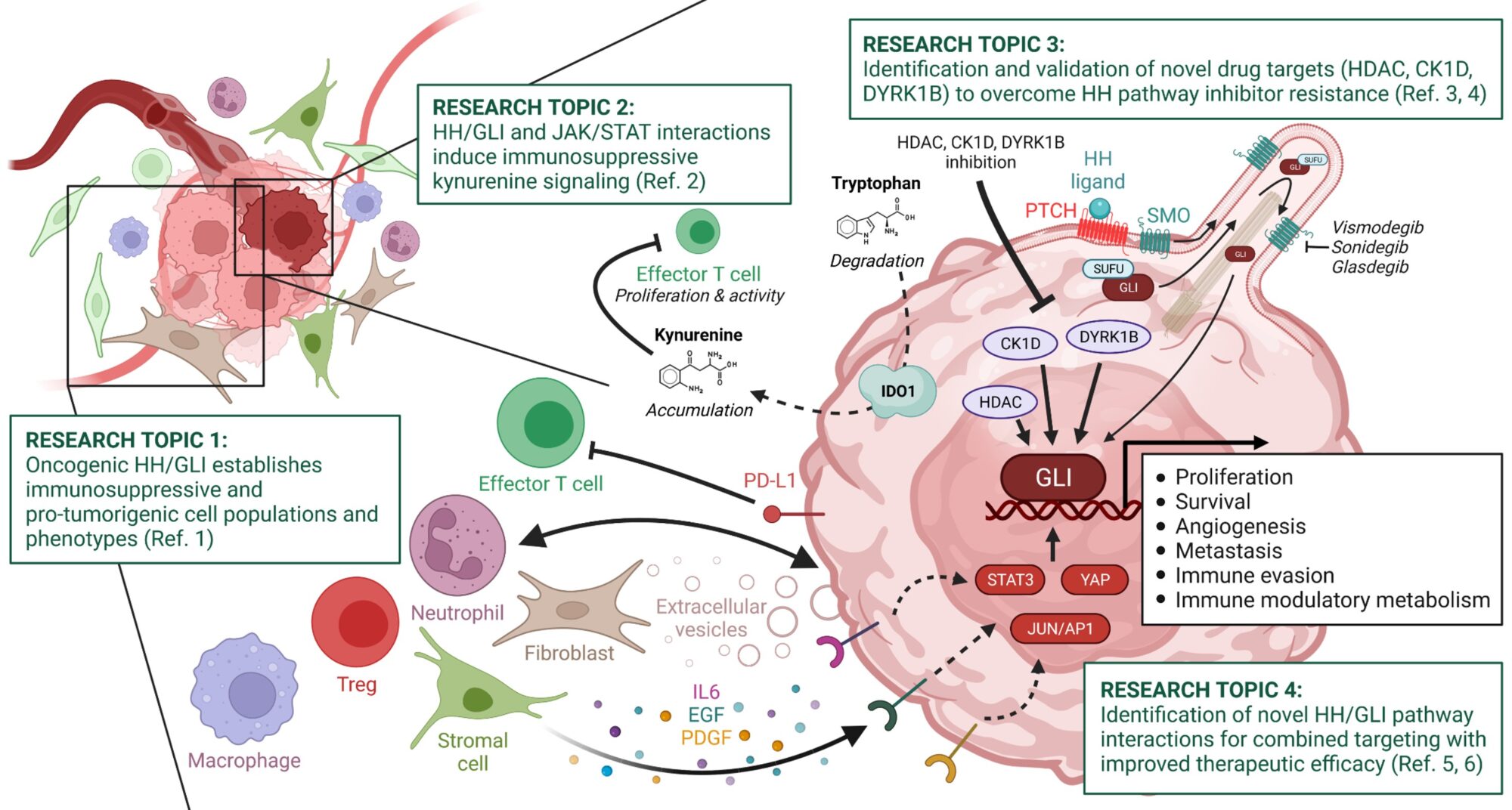Molecular Cancer Biology
Oncogenic Signaling and the Tumor Immune-Environment
Despite significant progress in the fight against cancer, the disease is becoming a global pandemic. In 2022, about 20 million new cases of cancer will be diagnosed worldwide and about 10 million people will die from cancer. By 2050, the global cancer burden is expected to increase to about 35 million new cases per year. The socio-economic impact of cancer is also alarming. Premature death and physical disability result in significant economic losses. The development of innovative and effective therapies is therefore one of the greatest challenges facing biomedical research in the 21st century.
Understanding the complex molecular and genetic networks that regulate cancer growth, metastasis and drug resistance is key to developing improved therapies. Research of the Aberger lab focuses on oncogenic signalling pathways such as Hedgehog/GLI, EGFR, HIPPO and JAK/STAT, their interaction in cancer cells and tumour-initiating metastatic stem cells (CSCs), and their role in suppressing anti-tumour immune responses (see Figure 1). Fighting cancer through targeted and rational combination therapies, including immunotherapeutic approaches, is the central goal of the Aberger lab.

Figure 1: Cancer (stem) cells, Hedgehog/GLI signaling and the tumor microenvironment. Vivid signal cross-talk between cancer cells, rare tumor initiating cancer stem cells (CSC) and the microenvironment drives cancer growth and metastasis. Understanding the molecular basis of these molecular communication processes will open up new opportunities for innovative therapies based on rational multimodal combination treatments. References: 1) Grund-Groeschke et al., Mol. Oncol, 2020.2) Elmer et al., Cell Comm Signal, 2025.3) Gruber et al., Int. J. Cancer , 2018.4) Peer et al., Cancers, 2021.5) Eberl et al., EMBO Mol. Med., 2012.6) Krenn and Aberger, Blood, 2023. (created with Biorender.com).
Research network activities:
The Aberger group together with the Salzburg Cancer Research Institute at the University Clinics Salzburg (SALK/PMU) founded the “ Cancer Cluster Salzburg“ (CCS). a research network of 20 expert groups in basic, translational and clinical cancer research to explore new cancer-driving mechanisms and develop innovative treatments with improved therapeutic efficacy (for details see: www.cancercluster-salzburg.at).The Aberger group is a member of the doctoral school PLUS “Biomolecules in Health and Disease” and a member of the “Center for Tumor Biology and Immunology (CTBI)” from the University of Salzburg.




